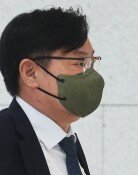Don`t overreact to radioactive levels
Don`t overreact to radioactive levels
Posted November. 10, 2011 01:12,
The Nuclear Safety and Security Commission concluded Wednesday that no problem was detected threatening the safety of residents living near a radioactive-contaminated road in Seouls northern district of Nowon. Scrapped medical radioactive equipment is suspected to have entered the asphalt on the road by mixing with discarded construction materials, but the exact cause of the contamination remains unknown. Residents are more afraid that radioactivity was detected on the road and in residential areas than the level of radioactivity.
The Korea Institute of Nuclear Safety said that based on on-the-spot investigations, the level of radioactivity a person can be exposed to over one year is 0.51 to 0.69 mSv, a sixth of the radioactivity that exists in nature. This is less than the permissible radioactive level of 1 mSv that a person can be artificially exposed to except for natural and medical radiation. This means there is no cause for excessive fear.
Seoul Mayor Park Won-soon visited the place where the radioactivity was detected and said, The city government will conduct an epidemiological survey of residents and begin a sweeping investigation into similar paved roads. He correctly sought to take action on the matter but overreaction will cause more worries.
Kim Sang-gon, the educational superintendent of Gyeonggi Province, ordered school closures on April 7 after radioactivity was leaked from Japans Fukushima nuclear plant in March for fear of radioactive rain. After certain schools were closed, parents` fears were amplified and many posted complaints on the homepage of the provinces education office requesting the closure of schools their children attended. By contrast, schools in Japan excluding those near the crippled nuclear plant were not closed at the time. The Japanese daily Asahi Shimbun and TV broadcaster NHK called Koreas school closures absurd.
Japan`s nuclear accident was a reminder of the danger of nuclear energy. As part of diverse measures to strengthen nuclear power safety, the Korea Institute of Nuclear Safety was established. The safety of nuclear power should be strengthened, but overreaction is unnecessary. Reducing a miniscule level of radioactivity that poses no harm to the human body into zero is impossible and a waste of tax money. The detection of radioactivity on a road in Seouls Nowon district showed that radioactivity is not confined to nuclear power plants. Hospitals and think tanks that use radioactive materials must pay close attention to the management, transportation and scrapping of related materials.
Headline News
- Med professors announce intention to leave hospitals starting Thursday
- Bridge honoring Sgt. Moon Jae-sik unveiled in Pennsylvania
- Chief of Staff Chung tells presidential secretaries to stay away from politics
- US FTC bans noncompete agreements
- N. Korea launches cyberattacks on S. Korea's defense companies







